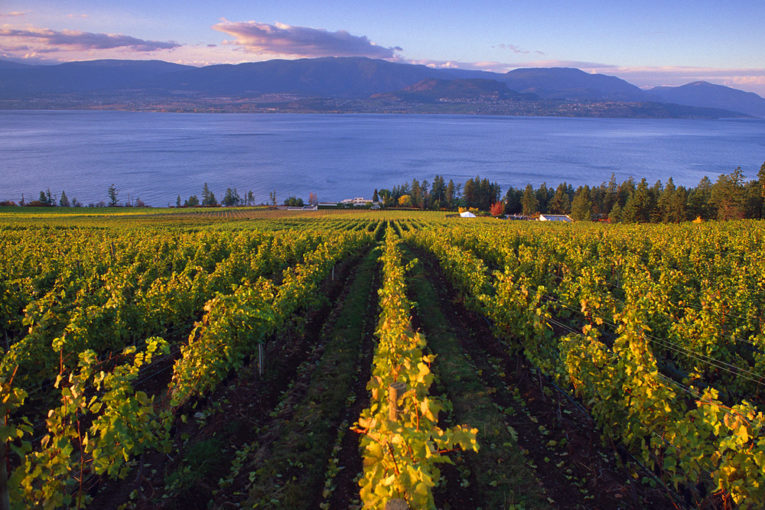
In an ironic twist, British Columbia’s wine industry is looking to tap Asian markets for its blends after being banned in the Alberta market.
The spat began in January when B.C. proposed new environmental rules, seen by critics as a ploy to frustrate Kinder Morgan Canada Ltd.’s plans to connect Alberta’s oilsands to Asian markets by expanding the Trans Mountain pipeline.
Alberta Premier Rachel Notley moved swiftly to cancel negotiations to purchase hydroelectricity from B.C. and block the flow of B.C. wine across the Rockies as retaliatory measures.
B.C. Premier John Horgan, who has said he won’t escalate the crisis with a ban on Alberta beef, is now eyeing other export markets, such as the U.S. and Asia, for B.C.’s prolific vineyards.
“We’ve made it clear that we are going to be seeking new markets to replace any lost market we may have in Alberta,” Horgan said Friday.
Caught in the crossfire are B.C. wineries, who rely heavily on rack sales across the Rockies, accounting for roughly 20 per cent of the province’s wine market.
Jeff Harder, owner of Ex Nihilo Vineyards Inc. near Kelowna, says he’s been selling ice wine to China for years but will now promote more table wines to Asia to make up for the roughly 20 to 30 per cent of his bottles typically sold in Alberta.
He also hopes to sell more wine into Ontario and Quebec, where environmental activists already have begun a #qclovesbcwine movement on social media in support of B.C.’s anti-oil stand.
But B.C. winery owners say they understand the frustration of Albertans, who are facing difficulty accessing markets in Asia and the U.S. following years of pipeline delays.
“If Albertans don’t have jobs, they’re not coming to British Columbia for tourism,” Harder said.
A handful of B.C. wineries, including some owned by Albertans, are also trying to ease tensions with the province, by organizing an event later this month in Vancouver to celebrate Alberta beef, pairing steak cuts with bottles of their own wine.
“Alberta beef and B.C. wine go really well together, so we’re doing a big event to support Alberta beef,” said Ian MacDonald, president of Liquidity Winery in Okanagan Falls, B.C.
“If anyone is missing in this equation, it’s (Prime Minister) Justin Trudeau. I have a big problem (with him) going to hang out with celebrities in the U.S. when, really, he should be coming out West to ease the tensions and work with the premiers
“Whether we accept it or not, Canada is an energy producing nation,” MacDonald said, adding that blocking federally approved pipelines will only hurt the country’s economy. “If you start backing out of tens of billions of dollars per year in tax revenues to this country, who is going to pay for that?
“I think that if anyone is missing in this equation, it’s (Prime Minister) Justin Trudeau,” he said. “I have the biggest problem (with him) going to hang out with celebrities in the United States when, really, his main priority at this time should be coming out West to ease the tensions and work with the premiers,” MacDonald said.
Bob Johnson, the owner of Baillie-Grohman Estate Winery in Creston, B.C., says he’s sympathetic with Albertans who are frustrated that pipelines have not been built and their economy is suffering.
“It’s ridiculous,” he said of the B.C. government’s proposal to limit bitumen shipments across the province. “I know the people of Alberta want good representation as far as pipelines are concerned.”
The winemakers say they are hopeful the trade dispute between Alberta and B.C. will be resolved quickly – so their wine can once again be sent to Alberta, while crude oil can flow through the Trans Mountain pipeline.
However, Notley has hinted that more action against B.C. industries could be coming in a video posted on social media this week, although she didn’t specifically name what Alberta might do in an attempt to increase pressure on both Trudeau and Horgan.
B.C.’s agriculture sector is particularly vulnerable to a trade dispute with Alberta, according to Canada West Foundation analysis gleaned from Statistics Canada inter-provincial trade data.
Alberta, for example, is the dominant market for cattle and calves from B.C., accounting for 76 per cent of all B.C. cattle exports and worth $213 million annually. Similarly, 64 per cent of tree nursery and floriculture products from B.C. go to Alberta each year, valued at around $324 million to the coastal province.
By contrast, B.C. is a proportionally smaller market for most Alberta exports. Roughly 26 per cent of the milk produced in Alberta is sent to B.C. each year and those exports are worth $140 million. About 13 per cent of the beef produced in Alberta is sent to B.C. each year, accounting for roughly $554 million.
Meanwhile, the value of the Trans Mountain pipeline to Alberta’s oil and gas producers runs into the billions of dollars.
“This should not be portrayed as a battle between two provinces,” Canada West Foundation president and CEO Martha Hall Findlay said, adding that the dispute “will hurt people across the country.”
Financial Post with a file from The Canadian Press
gmorgan@nationalpost.com
You can read more of the news on source
